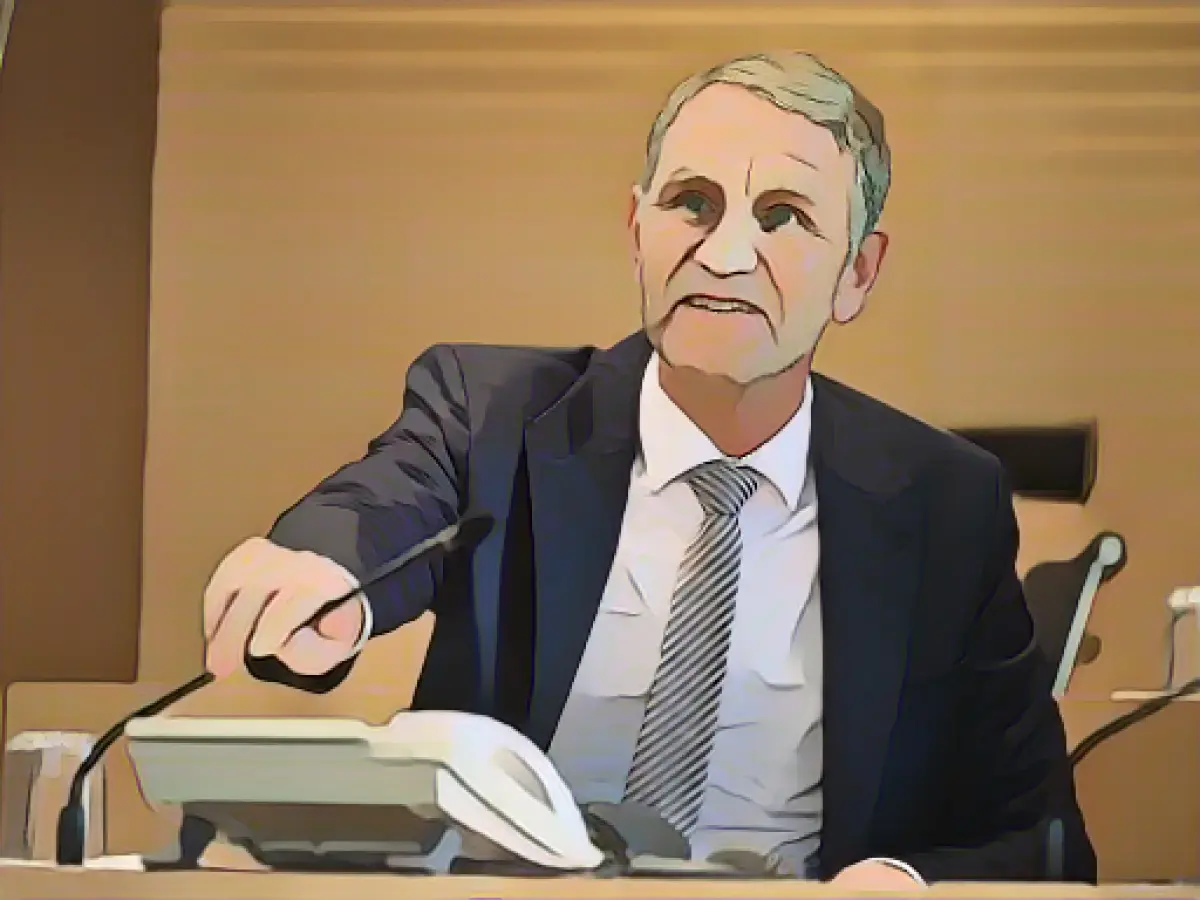Thuringia's AfD chair Björn Höcke is set to become the top candidate for the 2024 state election, according to a scheduled state election meeting on Friday. The 51-year-old first announced his ambition a year ago to lead the party into the campaign again. The Thuringian AfD, classified as a right-wing extremist party under observation by the State Office for the Protection of the Constitution, often leads in pre-election polls.
Prime Minister Bodo Ramelow's Left Party was the strongest party in the 2019 state election, with the AfD in second place. However, recent polls show the AfD in the lead - with figures of 32 to 34%.
Höcke has consistently highlighted his party's aspirations to be part of a government, though coalition talks are unlikely given the AfD's extremist classification and no other party's willingness to form a government with them. The CDU and FDP, however, do accept AfD votes to pass their laws.
In 2024, Björn Höcke will spearhead the AfD in Thuringia's state election bid, aiming to repeat the party's near-historic victory in 2019. As the leading figure in the far-right "Der Flügel" faction, Höcke's rhetoric and stance have generated both controversy and support.
Breaking Down the Controversy
- Right-Wing Extremism Classification:
Germany's Federal Office for the Protection of the Constitution categorized the AfD as a right-wing extremist organization, mainly due to its stance on migration policy. This position is viewed as incompatible with Germany's fundamental democratic principles.
- Björn Höcke's Role:
Höcke, as the sole leader of "Der Flügel" after André Kalbitz was banned from the party, has made provocative statements - like a 2015 comment that was seen as favoring past German dominance.
- Thuringia State Election Impact:
The AfD's win in Thuringia's 2019 state election, under Höcke's leadership, established a significant precedent by becoming the first far-right party to rank first in a state election since the Nazi era. This achievement resulted in a record high vote share of 33% for the AfD in Thuringia.
Potential Implications
- Election Impact:
Höcke's influence in the upcoming election could further cultivate far-right support in Germany, potentially impacting national politics further, especially leading up to the federal election.
- Legal and Constitutional Concerns:
The Federal Office's classification of the AfD as a right-wing extremist party raises legal and constitutional concerns due to its contrasting views on immigration and human dignity.
- National Ban Discussions:
Considerations of banning the AfD nationwide have been debated, though legal and political obstacles remain. Constitutional experts argue that such a ban may protect democracy from the party's destructive influence.
- Social and Political Polarization:
Höcke's leadership and the AfD's success have heightened societal and political polarization in Germany due to the divisive nature of its rhetoric and beliefs, further fragmenting the political landscape.
The AfD's influence under Björn Höcke's leadership is shaping Germany's political landscape significantly, raising essential questions about extremism, democracy, and potential future political direction.








